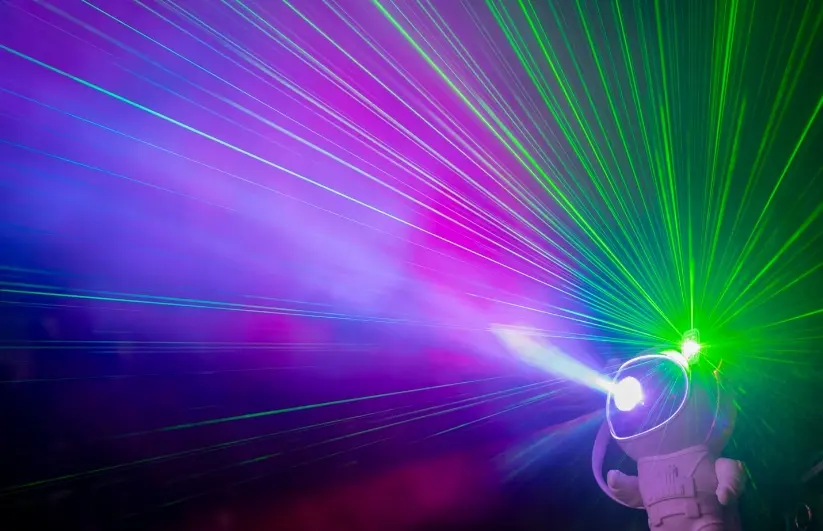
Laser Product Qualification Consultants
en 50689:2021 is the European Union standard for laser product safety, titled "Safety of laser products—ParticULar requirements for consumer laser products." The full title is “Laser Product Safety — Particular Requirements for Consumer Laser Products.” The details are as follows:

Scope
This standard applies to laser products intended for use by the general public (non-professionals), or those that are not specifically intended for the general public but might reasonably be used by the public under foreseeable conditions, such as robotic vacuums, laser TVs, laser printers, and more. The following products are not coveRED by this standard:
- Laser projection products with a wavelength between 380-780nm, intended for prolonged use and direct projection onto the user's retina, such as VR and AR products.
- Laser products for use by professionals only, which cannot be used by the general public.
- Toy products.
- Consumer laser products classified as Class 1C.
Key Requirements
1. Product Classification:
Laser products are classified into Class 1, Class 2, and Class 3R based on safety risks. Non-toy laser products that attract children must be classified as Class 1. Other consumer laser products must be classified as Class 1, Class 2, or Class 3R.
2. Safety Design:
The product must not cause harm to eyes or skin under normal or foreseeable misuse conditions. For Class 3R products, the product cannot be a laser pointer and must not require direct eye exposure to the beam during use. The laser wavelength must be in the range of 400nm ≤ λ < 1250nm.
3. Labeling and Instructions:
- Labeling: The product must comply with the labeling requirements of EN 60825-1, with the reference standard updated to EN 50689:2021, and must indicate it is a consumer laser product.
- Instructions: In addition to the requirements in EN 60825-1, for Class 3R products, the instructions must include warnings not to intentionally irradiate individuals.
4. Emission Control:
Laser emission indicators must be described, and control specifications must be developed to ensure the laser does not accidentally emit.
5. Implementation Timeline:
This standard was published on November 30, 2021, and will be mandatory from September 27, 2024.
EN 60825 is an important laser product safety standard developed by the International Electrotechnical Commission (IEC), playing a crucial role in global laser industry safety regulations.
Standard Composition
- EN 60825-1: This is the core part of the standard, numbered EN 60825-1:2014, and outlines the classification and requirements for laser products. It applies to laser products emitting wavelengths from 180nm to 1mm, including single lasers and complex optical, electrical, or mechanical laser systems.
- Other Parts: EN 60825 includes additional parts, such as EN 60825-2, which provide more detailed safety requirements and testing methods for different types or aspects of laser products.
Main Content
- Laser Product Classification:
- Class 1: The highest safety level; no harm to eyes or skin under normal use.
- Class 1M: Safe for the naked eye, but there may be risk when viewed through optical devices (such as magnifiers).
- Class 2: Visible light lasers; brief exposure is safe, but prolonged direct eye contact should be avoided.
- Class 2M: Similar to Class 2 but with a risk when viewed through optical devices.
- Class 3R: Low-risk lasers, but direct beam viewing should be avoided.
- Class 3B: Significant eye and skin hazards, requiring strict protective measures.
- Class 4: The highest risk, can cause serious injury or even fire, requiring full protection.
- Labels and Warning Signs:
Laser devices must be clearly labeled with the laser class symbol, warning icons, operation instructions, and risk precautions.
- Safety Design Requirements:
Laser devices must be designed with optical shielding, mechanical protection, automatic shutoff, and operation limitations to ensure safety.
- Testing and Certification:
Laser devices must undergo testing and certification by organizations before being marketed to ensure their actual performance meets classification requirements. Testing includes laser power testing, wavelength range detection, radiation leakage evaluation, etc.
If you or your clients have any questions regarding laser product FDA compliance, feel free to contact me. I will provide professional support and solutions!
Email:hello@jjrlab.com
Write your message here and send it to us
 2026 EU SVHC Candidate List (253 Substances)
2026 EU SVHC Candidate List (253 Substances)
 LFGB Certification Cost and Timeline Guide
LFGB Certification Cost and Timeline Guide
 Bluetooth FCC Test Report
Bluetooth FCC Test Report
 Is FCC Testing Required?
Is FCC Testing Required?
 Where to Find FCC Test Reports
Where to Find FCC Test Reports
 LFGB Compliance Testing for Plastic Food Contact M
LFGB Compliance Testing for Plastic Food Contact M
 How to get LFGB Compliance Report for Food Grade P
How to get LFGB Compliance Report for Food Grade P
 LFGB Certification Process for Kitchenware Product
LFGB Certification Process for Kitchenware Product
Leave us a message
24-hour online customer service at any time to respond, so that you worry!




